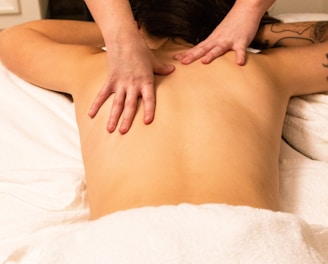The Integrated Manual Therapy Project
These manual therapy practical workshops aim to integrate the traditional techniques with the most current understandings in anatomy and physiology. Participants will learn how to apply manual therapy techniques in a safe and effective way, by understanding the underlying mechanisms of the human body. The workshops provide a hands-on approach to learning. By the end of the sessions, participants will have gained practical skills that they can apply in their daily practice. Whether you are a Physiotherapist, Chiropractor, or Massage Therapist, these workshops will provide you with the tools to enhance your manual therapy techniques and improve your patients' outcomes. Don't miss this opportunity to learn from experienced practitioners and take your manual therapy skills to the next level!


Your Hands on Knowledge is Valuable Clinical Information
Palpation is a crucial method for evaluating the condition of a patient and directing the course of treatment. When a manual therapist uses palpation, they use their hands to feel for various changes or abnormalities in the patient's body. This technique can help them identify areas of pain, or tension that may need attention. This information and your ability to discern is the basis for your unique ability to assess your client and becomes the starting point for every treatment plan We will explore our unique skills and ways to think about its clinical relevance as we describe our finding to clients and other professionals


Reviewing Basic Muscle and Joint Assessment
Assessing muscle and joint injuries (strain and sprain) may be the most important task we do. By identifying pain through palpation, range of motion testing, joint mobilizations and other skills. We can confidently identify tissues (or not )that reproduce pain. The results of our assessment give us a starting point for our treatment.
Having a basic understanding of assessing muscle and joint injuries is a great starting point to organize our treatments
Join us in this workshop to build on what you know, to create better understanding of how your knowledge of the body can be translated into muscle and joint assessment skills
Next Date: TBD
Time: 10am - 6pm
Cost: $250 + HST
Location: TBD
Contact us at: ron.rmt@gmail.com


Treatment as Assessment
Massage treatment can be an effective way to assess muscle injuries. A skilled therapist can use massage techniques to assess quality of the tenderness, locate specific areas of pain, name them and work to alleviate any guarding or tension that arises as a result of the pain in the affected area. During a massage treatment session, the therapist may use a variety of techniques, such as deep tissue massage, trigger point therapy, or myofascial release, to help identify and address any underlying issues. In addition to providing pain relief and promoting relaxation, massage can also be a valuable tool to rule in or rule out the various cause of the pain. Often the pain presents differently post treatment, creating a opportunity to reimagine the possible sources of the disfunction


